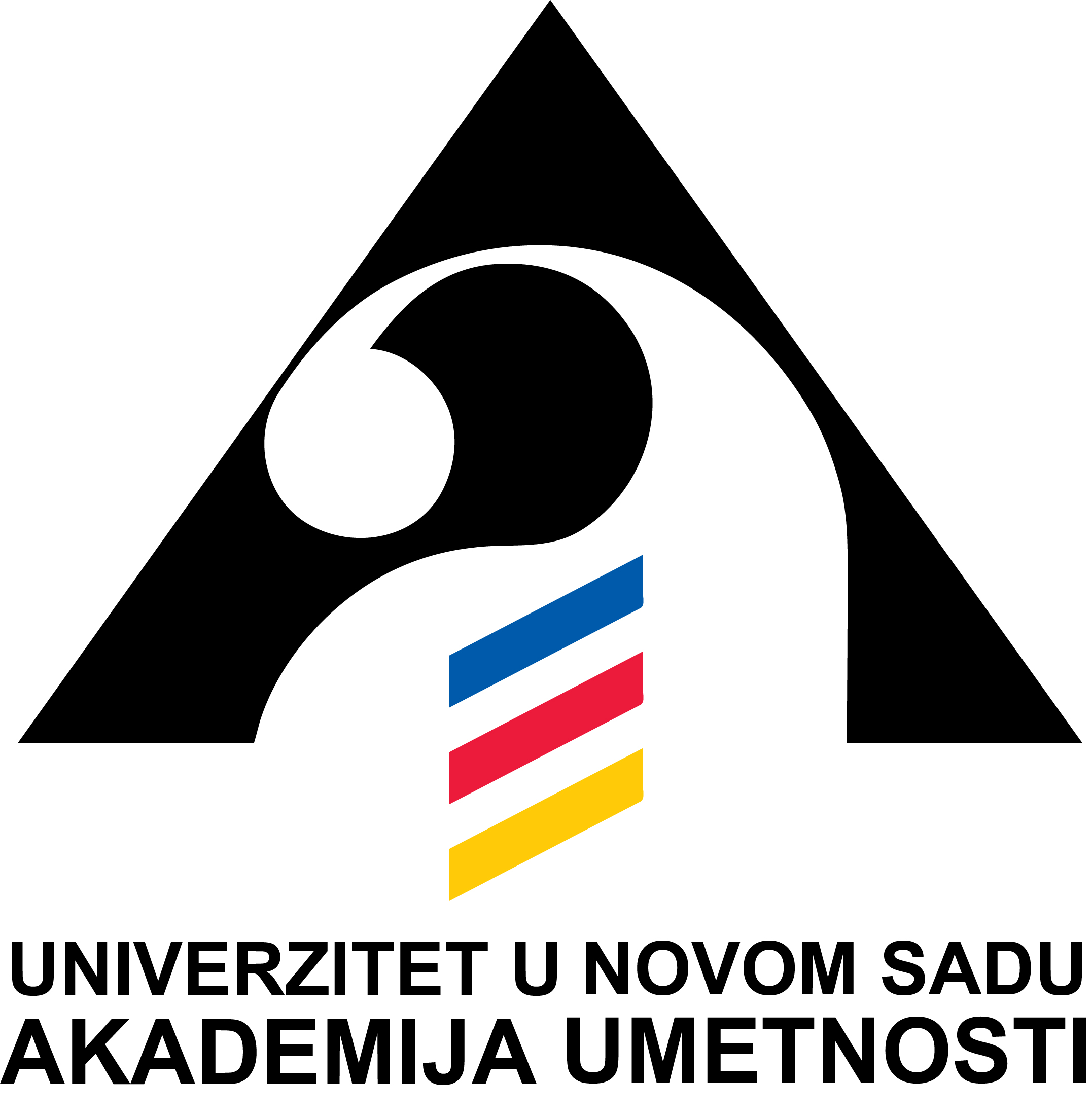General Information
The Academy of Arts has been a member of the University of Novi Sad since 1974 when it was founded. Its organization consists of three departments: the Department of Music, the Department of Fine Arts, and the Department of Dramatic Arts. All three departments run 27 bachelor degree programs, 28 master’s degree programs, one integrated study program, and, as of the academic year 2015/2016, five three-year courses in doctoral art studies.
In order to become a student of the Academy of Arts, one must pass the entrance exam first. During the course of studies, the teaching process is realized most frequently on an individual basis, or in small groups, but also on a collective basis for theoretical subjects. Precisely due to this mode of teaching, a relatively high success rate and a very high pass rate of students from one academic year to the next is being achieved, which, in turn, results in an almost optimal duration of undergraduate studies, and consequently, a high grade average.Alongside the educational activity at the Academy of Arts, various artistic, scientific and research projects are being conducted in the form of concerts, exhibitions, theater performances, symposia and festivals. This includes A-FEST – the Student Festival of the Department of Music, Student Theatre Festival, the Concert Season, concerts of the Symphony Orchestra of the Academy of Arts, Final Exhibition of the Students of the Department of Fine Arts, the Biennial of Student Poster and Photography etc. Scientific and research projects are implemented individually or within a group and their results are presented in domestic or international journals and in mutual publications of the University of Novi Sad., University of Arts Belgrade, Matica srpska and other similar institutions in Serbia.
Performing its educational activity through regular academic cycles of bachelor, masters, specialist and doctoral studies, but also through the alternative modes of teaching (open chairs, master classes, seminars, summer schools, competitions), the Academy of Arts treats education as a developing category, and with the application of the mechanisms of constant quality control and development, permanently adapts its study programs so as to follow the standards of modern interactive teaching and learning. Engaging the students as equal partners in the process of teaching, creative work and research, the continual monitoring of their achievements, as well as a complete openness and public transparency of the applied procedures of examination, form the basis on which the objectivity of the evaluation of achieved results and accomplished level of professional development of each student are founded on.
With harmonized study programs and their realization through one-semester courses (subjects), the introduction of a wide spectrum of elective courses, the application of the European Credit Transfer System – which provides easier recognition of educational programs and enables the accumulation of results achieved in various institutions and cultural environments and thus the academic mobility of students and professors – the Academy of Arts has joined the European Higher Education and Research Area based on the Bologna Declaration and other documents related to the Bologna Process.






